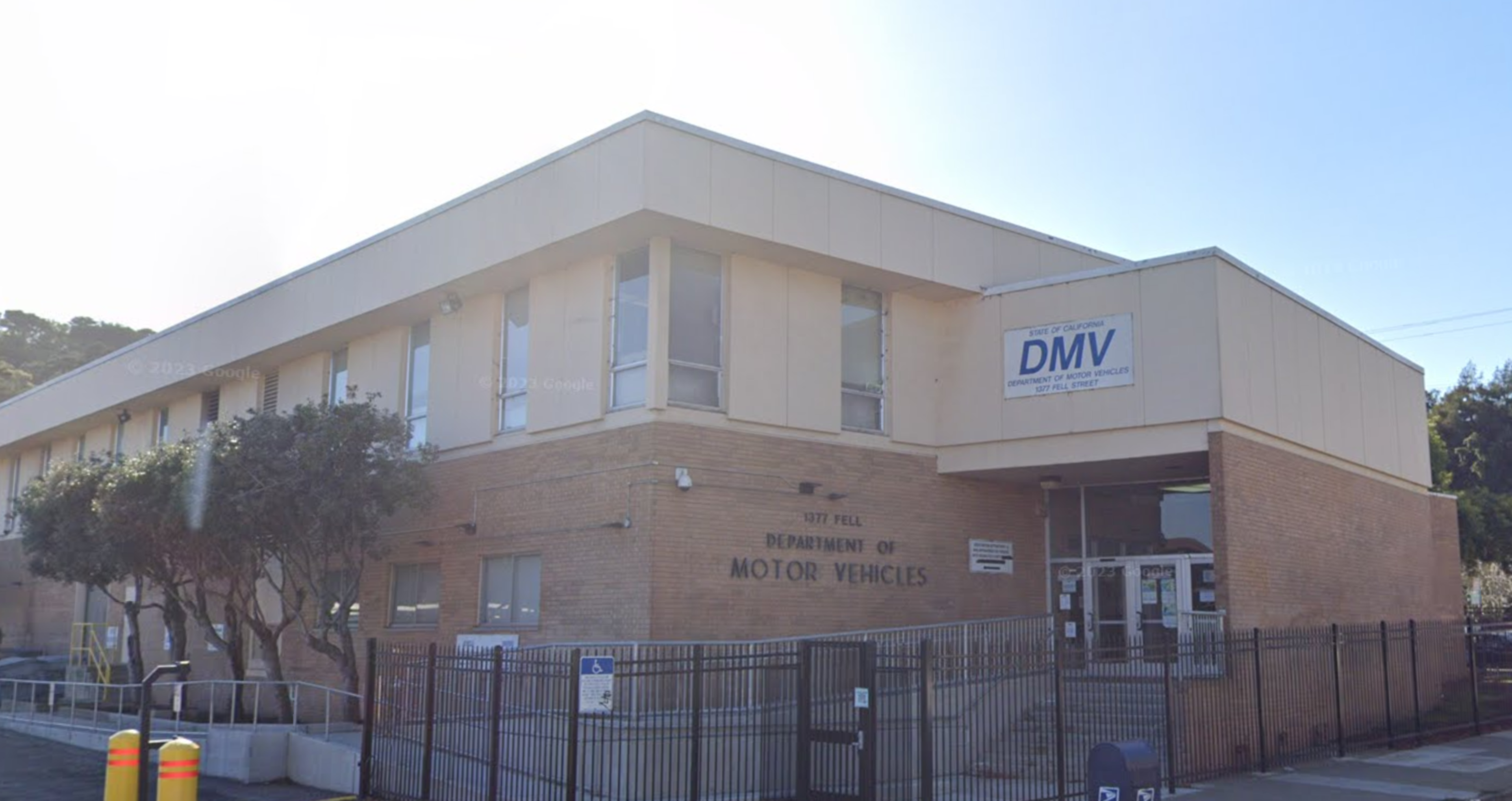The California Department of Motor Vehicles office next to the Panhandle—a San Francisco landmark for local teenagers taking their first motorized foray into adulthood—could transform into a project with hundreds of affordable housing units.
A public request for qualifications put out by state officials on Thursday is seeking a developer to transform the 2.5-acre site at 1377 Fell St. into a mixed-use project that would replace the DMV office and erect new housing.
The existing office, which has stood on the site for 60 years, is in sore need of replacement due to aging infrastructure. But the land is also being put forward under California’s Excess Sites program, which is meant to leverage unused or underutilized state-owned property for affordable housing development.
READ MORE: What To Know About SF’s Plan To Create 82,000 New Homes
As a state-owned parcel, the site is technically exempt from local zoning requirements, but the call-out to developers says the project should consider neighborhood character and community input. Although the request for qualifications does not specify exact affordability requirements, one of the specifications should be to “maximize depth and breadth of affordability while maintaining financial feasibility.”
Interested parties have until Nov. 22 to respond to the call, and state authorities said they expect to select a developer in the first quarter of next year.
As part of the proposals, the DMV laid out certain non-negotiable requirements, including a new field office built to specific standards and ensuring that the housing cannot interfere with the agency’s operations. Developers will also need to replace the public parking lot for the office, which contains 110 spaces. The new DMV office is expected to open by May 2027.
The selected developer is expected to receive a long-term, low-cost ground lease model similar to that awarded to local developer Build Inc. in 2008 for a previous housing proposal on the site. Those plans eventually fizzled.
Supervisor Dean Preston, whose district includes the DMV office, has made a campaign out of trying to redevelop the site into housing and introduced a resolution last year to that end.
Preston’s effort was paired with a push by Assemblymember Phil Ting, who helped convene a meeting with the DMV and related parties like the California Department of General Services and the California Department of Housing and Community Development.
“We have a strong mandate from the state and adopted locally on affordable housing,” Preston said. “I certainly think that it’s appropriate for the state to help our city reach that goal through directly funding affordable housing and looking at what opportunities there are on state-owned land.”
Soon after state officials put out a request for information to gauge interest in a potential redevelopment, Preston said about a dozen parties responded, pitching housing projects spanning 300 to 500 units on the site.
The DMV parcel is one of a number of vacant or state-owned properties that Preston has identified as potential sites for affordable housing in his district.
“One of our priorities has been to make sure these commitments to affordable housing in the housing element are real and not just on paper,” Preston said.
A 160-unit project at the site of the former McDonald’s at 730 Stanyan St. in Haight-Ashbury broke ground in June and is expected to be completed by the end of 2025.
The city also acquired a parking lot at 600 McAllister St. to develop 196 units of affordable housing as part of the deal struck in July with developer Related California, which sought to increase the size of its tower at 98 Franklin St.
Parcel K in Hayes Valley, which is operated as Proxy, has been earmarked for affordable housing for decades. The Mayor’s Office of Housing and Community Development is slated to open a call-out to developers for that site. However, a request for qualifications has yet to be issued.
Earlier this year, the Board of Supervisors passed a state-mandated plan that would require the city to permit more than 82,000 new housing units (opens in new tab) over the next eight years. Under the plan, more than half of those units are meant to be affordable to low- or moderate-income residents.
However, the current rate of permitting and construction falls far behind the pace needed to meet that goal. In the first half of this year, the city permitted 179 units compared with the 5,000-plus needed to keep up with the state mandate.
